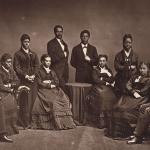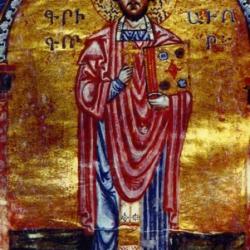It’s a question that understandably vexes Latter Day Saints, but it lies behind an important LDS-evangelical dialogue that took place for many years beginning in the early 2000s. Spearheaded by the former president of Fuller Theological Seminary Richard Mouw and the LDS theologian Robert L. Millet, the dialogue is a model of interreligious engagement—irenic, candid, erudite, thoughtful, encouraging. Intervarsity Press published its fruit as Talking Doctrine: Mormons and Evangelicals in Conversation (2015), edited by Mouw and Millet.
Having recently given a lecture at Brigham Young University, I used the opportunity to improve my (poor) knowledge of LDS theology. (Yep, I flubbed once and said “LSD.”) In addition to Talking Doctrine, I also heartily recommend Craig L. Bloomburg and Stephen E. Robinson’s How Wide the Divide: A Mormon and Evangelical in Conversation (1997) and Richard Mouw’s single-authored book, Talking with Mormons: An Invitation to Evangelicals (2012). And then of course there is the Book of Mormon. Reading it and some of these more recent works should be required for any Christian who aspires to have a thoughtful opinion on LDS. Too often in the past, evangelicals have attempted to refute what they haven’t bothered to understand.
But if I may return to Talking Doctrine, one finds in it heady theology, such as Craig Bloomburg’s mediation on the LDS understanding of the Godhead:
“As they [Latter Day Saints] study Christian history, they conclude that Nicaea not only reacted to Greek philosophy but also imbibed it. Athanasian and Arian debates between Christ being the same substance or essence (homoousios) as the Father and being merely a similar substance or essence (homoiousios) have absorbed a theological atmosphere far removed from the first-century Christian climate. Not only is the word Trinity not found in the Bible, but neither is the concept, according to standard Mormon thought. First-century Christianity was so corrupted in successive centuries, even more in Roman Catholic thought than in Eastern Orthodox thought, that a Reformation was not enough. A full restoration of primitive Christianity was needed. This, the LDS believe, occurred with the establishment of their religion by Joseph Smith Jr. in 1830.”
One also finds lighter fare in the book, such as Sarah Taylor’s reflection on life as an evangelical student at Brigham Young University (where only a sliver of the 36,000 students are non-LDS). “Moving to Provo [the site of BYU],” Taylor writes
“felt kind of epic, like entering a parallel universe. Everything seemed Mormon—the emergency supply stores, the cap-sleeved shirts, the married twenty-year-olds, the giant inflatable missionary on University Parkway . . . even the roads were Mormon, with their easily navigable grid system and prophetically inspired street widths. There was not a Starbucks in sight.”
Latter Day Saints do not drink coffee, of course. But hospitality trumps legalism, I happily discovered, when I found out that BYU’s guesthouse had a coffee maker!
But by far the most delightful part of my trip was meeting and conversing with Grant Underwood, holder of BYU’s Richard L. Evans Chair in Religious Understanding. A lecture series sponsored by this chair brought me to campus to speak on “The Promise of Interfaith Dialogue: Historical and Contemporary Realities,” which drew from my recent book on the topic.
Practically the Platonic ideal of geniality and hospitality, Professor Underwood had arranged for my wife Agnes (and former Anxious Bench blogger) and I to spend an entire day following the lecture in Salt Lake City, conversing with LDS leaders; visiting the LDS Church History Library; listening to the organ in the Tabernacle where the famous Mormon Tabernacle Choir performs; and even having our genealogies done at the impressive LDS FamilySearch! Family life and cross-generational connections are crucially important from the standpoint of LDS theology.
Of particular note, Professor Underwood has recently completed a book manuscript Mormonism among Christian Theologies (the labor of many years), in which he attempts to explain LDS teachings in light of Christian theology, aiming for a largely Christian readership. Once published, the book will no doubt be a landmark work in LDS-Christian understanding, revising many Christian stereotypes and producing, if not full convergence, at least better-quality disagreement. So, stay tuned.
Overall, my time in Provo and Salt Lake City was thoroughly enjoyably and instructive. While I have a long way to go, I am delighted to report that my ignorance of things LDS has been significantly dented. Better still, I have new friends.













